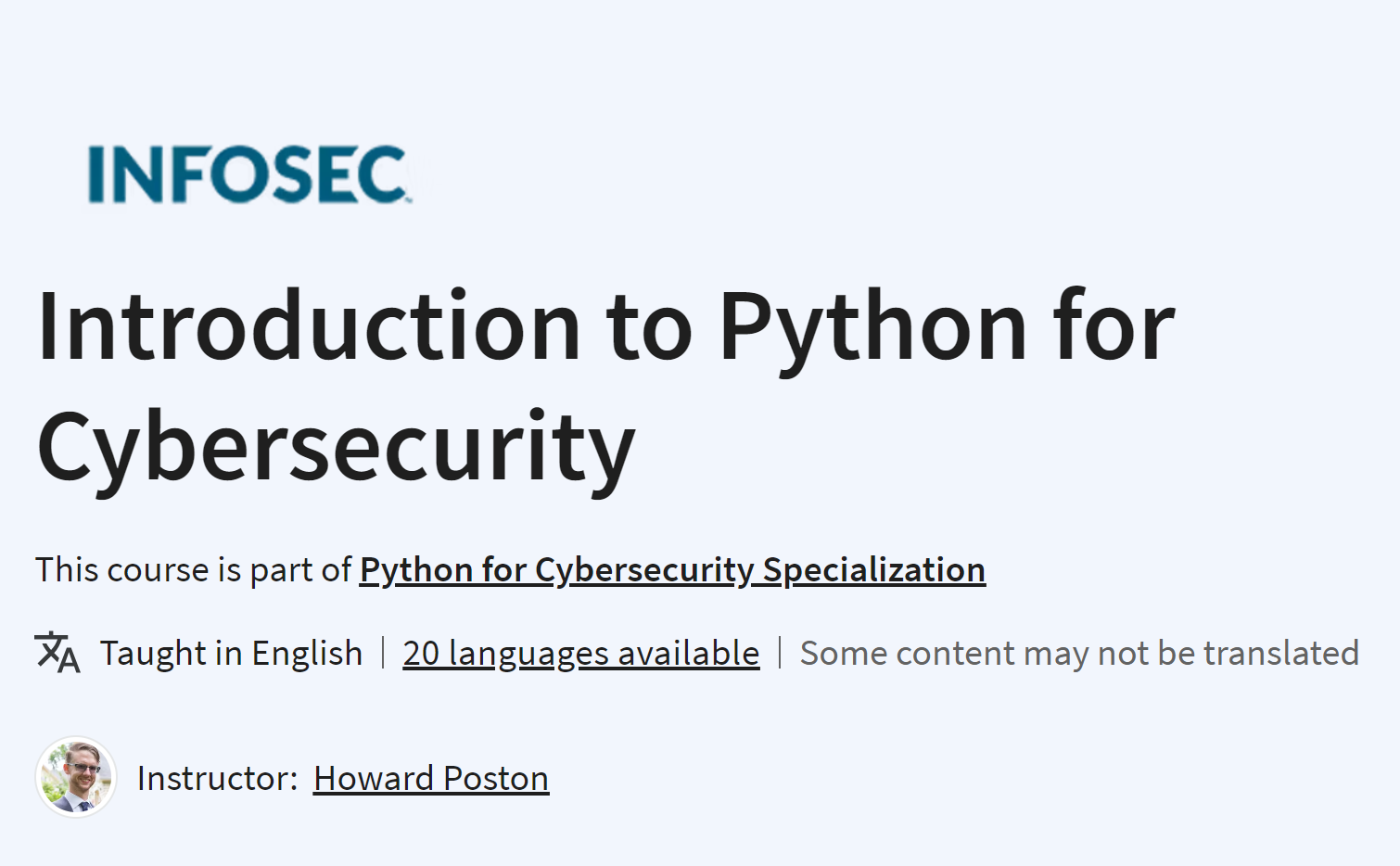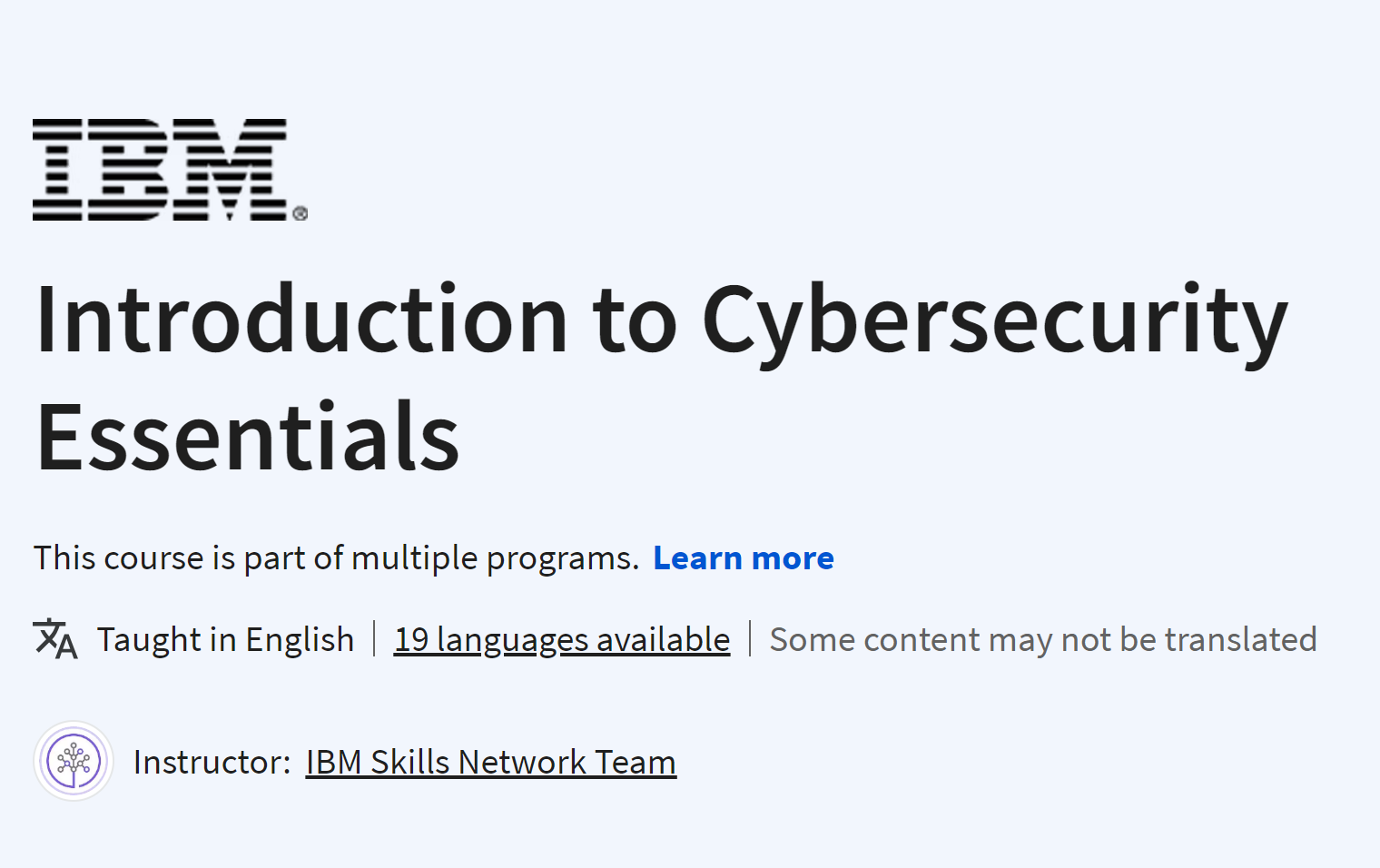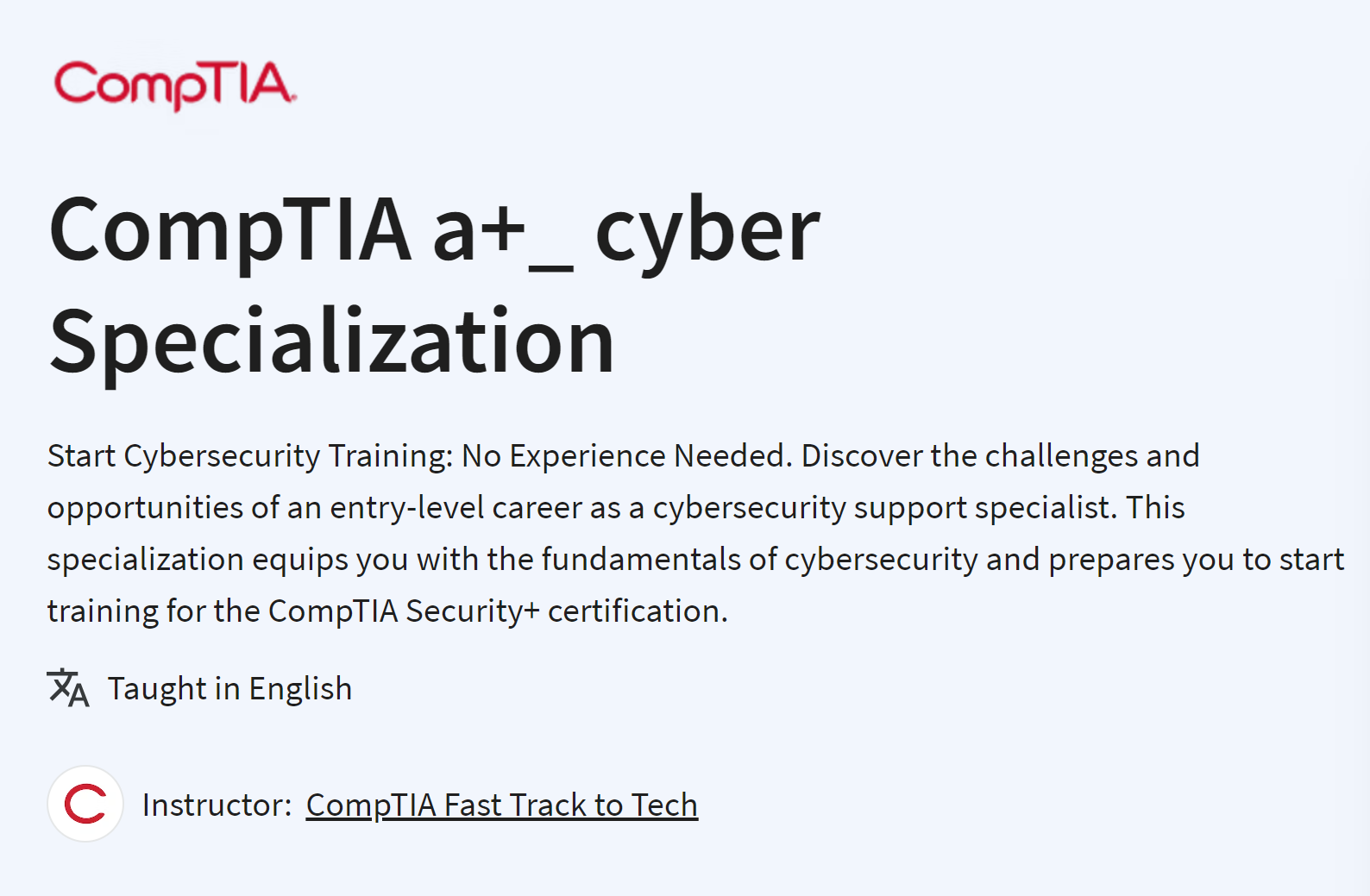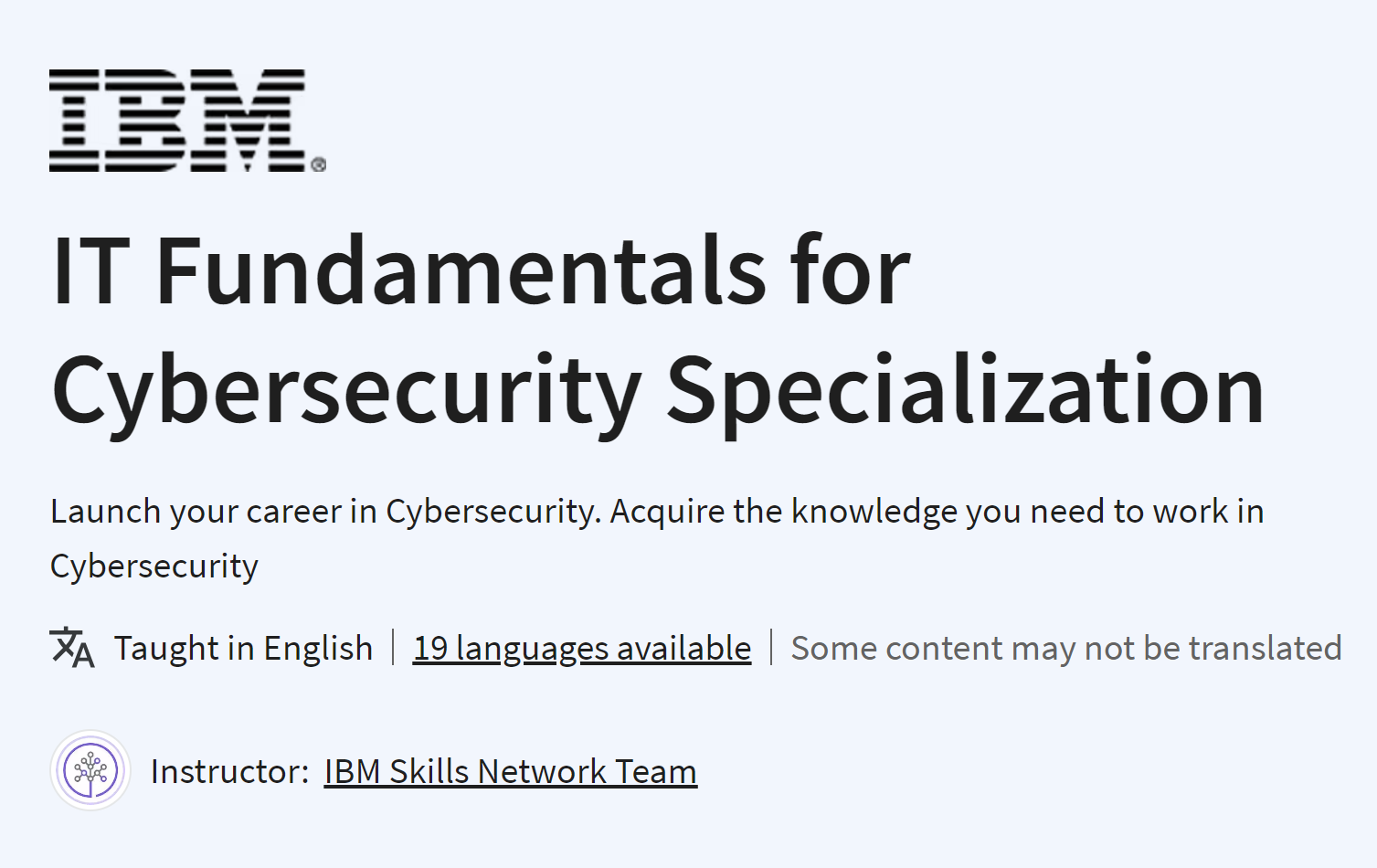In today’s digital world, cybersecurity professionals are expected to protect systems, analyze threats, and automate defensive tasks efficiently. One skill that stands out in this field is Python programming — versatile, powerful, and widely used for security automation, scripting, and tool creation.
The Python for Cybersecurity course on Udemy is designed to help learners bridge the gap between programming and practical cybersecurity. It takes you from zero coding experience to writing Python scripts that can interact with networks, handle files, automate tasks, and support real security workflows.
What This Course Is About
This course is structured to teach Python in the specific context of cybersecurity, meaning you learn the language alongside security-focused applications. It starts with the basics of Python and quickly moves into writing interactive programs useful for security tasks. The course covers fundamental Python concepts such as variables, loops, functions, data structures, error handling, and then applies these in scripts that support cybersecurity scenarios.
You will also explore how to use Python to make network calls, work with APIs, handle file input/output, create basic network communication using sockets, hash and verify passwords, and automate routine security operations. The hands-on approach ensures that you learn by building real scripts and programs, not just passive theory.
Why Python Matters in Cybersecurity
Python has become a cornerstone language in cybersecurity for several reasons:
-
Simplicity: Its readable syntax makes it accessible even for beginners.
-
Wide Library Support: Python has extensive libraries for networking, encryption, and data handling.
-
Automation: Many security tasks can be automated easily with Python scripts.
-
Tool Development: Python is used to build custom security tools for scanning, monitoring, and testing.
Because of these strengths, cybersecurity professionals often use Python to streamline repetitive tasks, analyze logs, implement custom scans, or automate response actions, making it a valuable skill for both defenders and ethical hackers.
Who Should Take This Course
This course is ideal for:
-
Beginners who want to learn Python with a security focus
-
Cybersecurity students looking to add programming skills
-
Security analysts who want to automate tasks
-
IT professionals aiming to build custom scripts for real-world security workflows
No prior programming or deep security knowledge is required, making this course accessible to those just starting out.
Your Learning Journey
As you progress through the course, you’ll develop the confidence to:
-
Write Python programs that interact with networks and web applications
-
Automate security tasks such as hashing, password checks, and API queries
-
Create scripts to communicate over sockets and handle security-oriented operations
-
Build practical tools that can assist in real cybersecurity scenarios
By the end of the course, you will have a solid grasp of Python fundamentals as well as the ability to apply scripting to everyday security challenges.
Join Now: Python for Cybersecurity
Conclusion
The Python for Cybersecurity course offers a practical foundation for anyone seeking to blend programming with security. It’s not just about learning syntax — it’s about empowering yourself to solve real problems with code.
If you’re stepping into cybersecurity or want to enhance your technical toolkit, this course can be a valuable stepping stone. By mastering Python scripting in a cybersecurity context, you’ll be better prepared to automate tasks, analyze threats, and contribute more effectively to security operations.






















.png)














.png)




.jpg)

%20by%20Allen%20B.%20Downey.jpg)



















